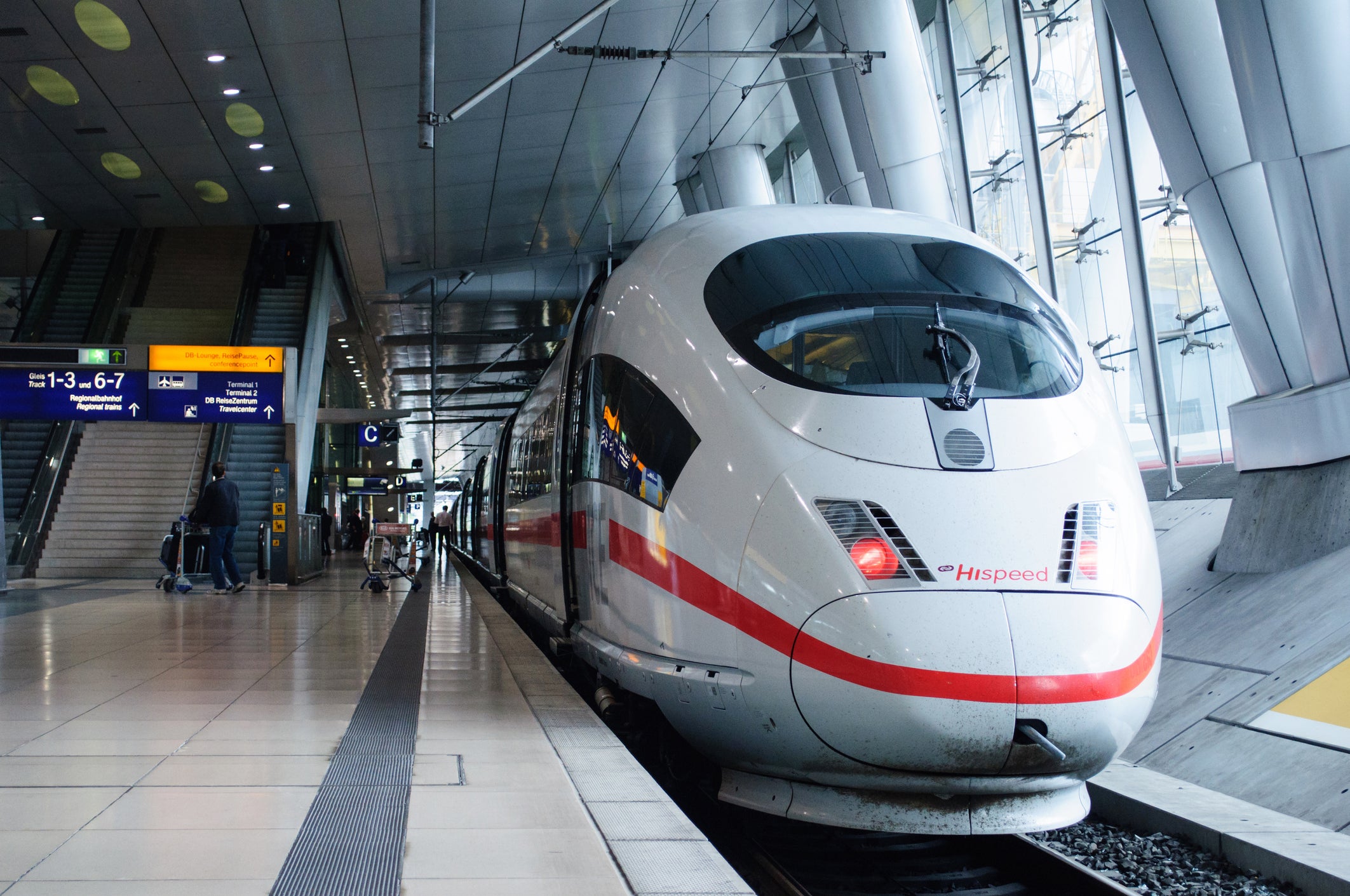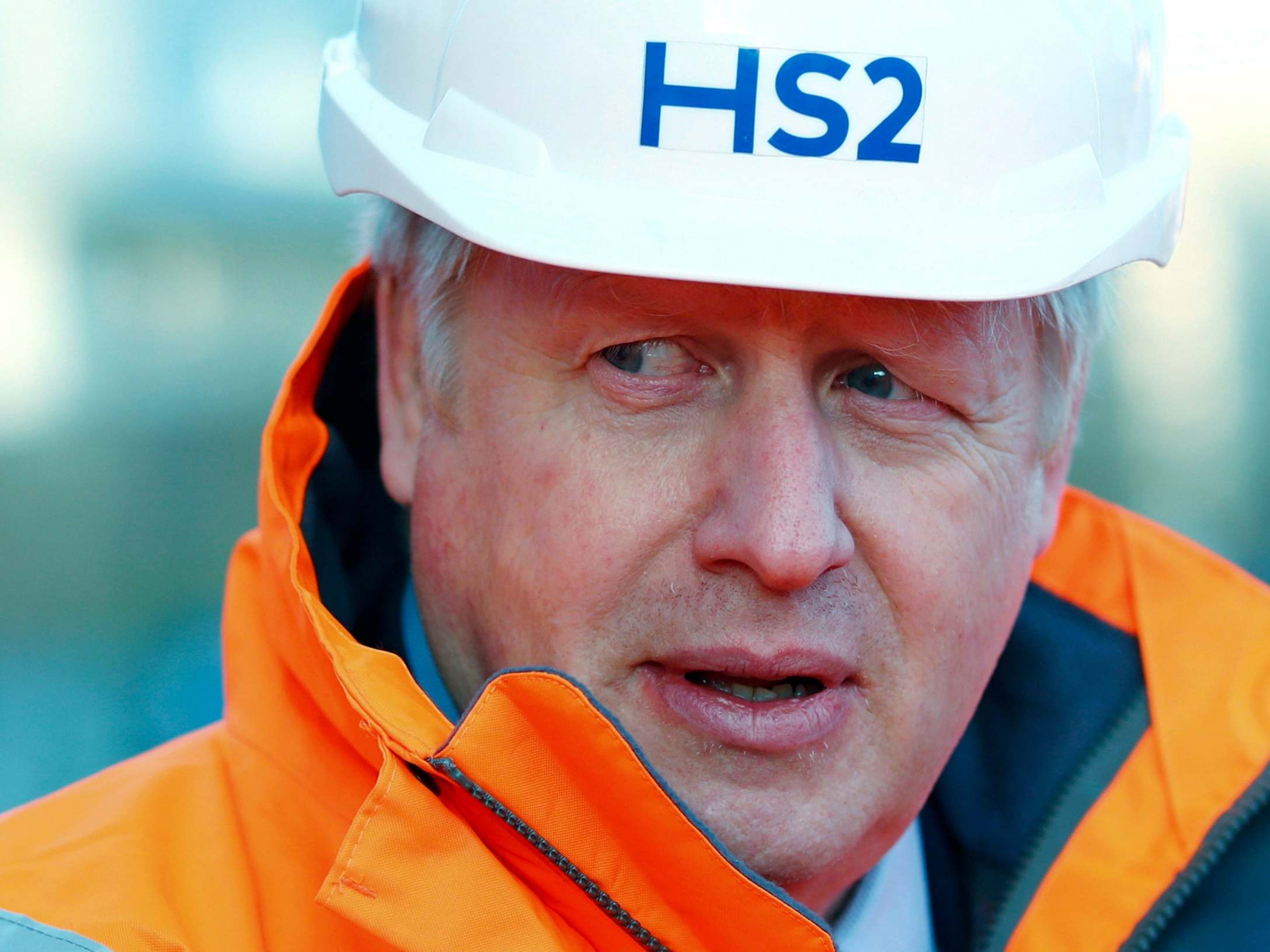Northern Powerhouse Rail construction start at least ‘several years away’
Proposed line connecting Liverpool and Leeds via Manchester and Bradford was first mooted by government nearly six years ago

Your support helps us to tell the story
From reproductive rights to climate change to Big Tech, The Independent is on the ground when the story is developing. Whether it's investigating the financials of Elon Musk's pro-Trump PAC or producing our latest documentary, 'The A Word', which shines a light on the American women fighting for reproductive rights, we know how important it is to parse out the facts from the messaging.
At such a critical moment in US history, we need reporters on the ground. Your donation allows us to keep sending journalists to speak to both sides of the story.
The Independent is trusted by Americans across the entire political spectrum. And unlike many other quality news outlets, we choose not to lock Americans out of our reporting and analysis with paywalls. We believe quality journalism should be available to everyone, paid for by those who can afford it.
Your support makes all the difference.Construction of a proposed railway linking northern cities across the Pennines will not start for several years at least, the government’s infrastructure watchdog has said.
John Armitt, chair of the National Infrastructure Commission, told MPs that the government needed to take decisions before even preparatory work could begin.
The rail line, which was first proposed by George Osborne nearly six years ago, is designed to link Liverpool and Leeds via Manchester and Bradford.
In its time it has been known by various names – including HS3, Crossrail for the North, and Northern Powerhouse Rail – and was most recently called “High Speed North” by Boris Johnson’s government.
Continuing with at least part of the project between Manchester and Leeds was one of Mr Johnson’s first announcements as prime minister, although little actual progress has been made.
“Northern Powerhouse Rail hasn’t been approved yet; Northern Powerhouse Rail hasn’t even been designed in any sort of detail yet. Northern Powerhouse Rail have asked government for £25m to get on with working up the outline scheme that they want to do,” Sir John told the Commons Transport Select Committee.
“Those are the sort of things that the government can do to get things moving because in the first place it’s not about digging holes, it’s actually about doing lots of environmental work assessments, design, consultation, land acquisition. There’s several years of work that will take place on Northern Powerhouse Rail before you can start digging holes.”
The scheme is backed by northern cities and will share some infrastructure with the north-south high-speed railway HS2, the construction of which was green-lit by the government last week.
Sir John said the best way for the government to ensure there was capacity to build multiple schemes all at once was to “give more certainty to its long-term plans and long-term strategy” so that contractors would feel able to invest long-term in their capabilities.
The chair of the Commission – which is conducting a review into phase two of HS2, connecting Birmingham to Manchester and Leeds – said the construction of new lines was a good idea.

“There is a limit to how long we can put Sellotape and sticky stuff on a railway which was laid down nearly 200 years ago, and occasionally you need to build new,” he said.
“The most reliable railway we have in this country is the Channel Tunnel rail link, or as it’s called these days: High Speed One.
“We have a capacity constraint on the West Coast main line, which is ... the main driver, really, for HS2. It’s called High Speed Two, but frankly it’s more capacity to the north. Rail will continue to grow; the demand is there.”
He warned critics of the project that it was difficult to accurately draw up an economic business case for it because that would involve making predictions.
“We’re talking about a project that is going to be beneficial to the country for the next 75 years at least, and forecasting how those long-term socioeconomic benefits will play out is difficult enough for anyone. I think occasionally you need to say, ‘This looks a sensible thing to do, so let’s go ahead,’” he said.
Sir John suggested that he did not expect his review to trim any stations or branches of HS2, telling MPs that “what I’ve heard from the prime minister and government ... is that in principle they expect phase 2b [past Birmingham] to go ahead”.
He said the inquiry was “more about [the] phasing and sequencing” of projects, and that, on whether the western or eastern leg would proceed, the inquiry was “taking those as given”.
Mark Thurston, the chief executive of HS2, also appeared before the committee and was asked about whether the coronavirus pandemic would slow down delivery of the project.
“We don’t know yet, frankly. None of us know quite how Covid-19 will play out this year,” he said, adding: “It’s too early for us to understand the full impact of the pandemic.”
HS2 has said that the project has continued during the pandemic, with social distancing introduced at sites where work can be carried out safely.
Join our commenting forum
Join thought-provoking conversations, follow other Independent readers and see their replies
Comments